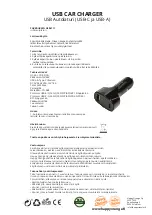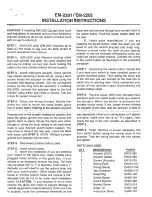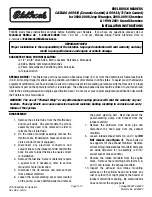
The following pages give general
guidelines for selecting and installing
child seats for infants and small
children.
To provide proper protection, a child
seat should meet three
requirements:
The child seat should
meet Federal Motor Vehicle
Safety Standard 213 (FMVSS 213)
or Canadian Motor Vehicle Safety
Standard 213 (CMVSS 213). Look
for the manufacturer’s statement
of compliance on the box.
Leaving children without
adult supervision is illegal in most
states and Canadian provinces,
and can be very hazardous. For
example, infants and small
children left in a vehicle on a hot
day can die from heatstroke. And
children left alone with the key in
the ignition can accidentally set
the vehicle in motion, possibly
injuring themselves or others.
Children
who play in vehicles can
accidentally get trapped inside the
trunk and be seriously injured or
could die. Teach your children not
to play in or around vehicles.
Know how to operate the
emergency trunk opener and
decide if your children should be
shown how to use this feature (see
page
).
Even very young
children learn how to unlock
vehicle doors, turn on the ignition,
and open the trunk, which can
lead to accidental injury or death.
89
Protecting Children
Driver and Passenger Saf ety
General Guidelines f or Using
Child Seats
Selecting a Child Seat
The child seat should meet saf ety
standards.
Do not leave children alone in your
car.
Lock all doors and the trunk when
your car is not in use.
Keep vehicle keys and remote
transmitters out of the reach of
children.
1.
24
















































